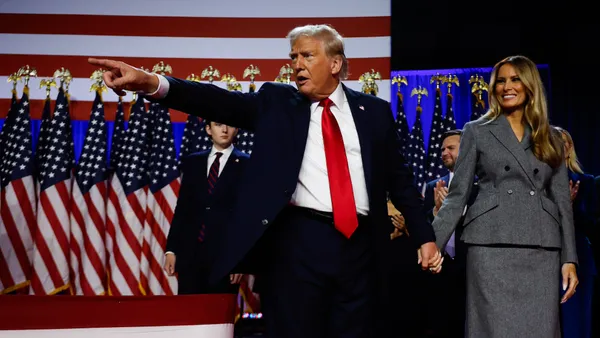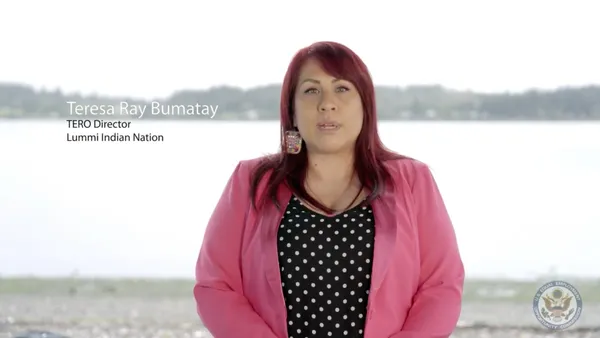Dive Brief:
- The World Economic Forum (WEF) is spearheading a coalition of 48 corporate leaders and their global corporations in a commitment to set new global standards for racial and ethnic justice in business. The initiative, Partnering for Racial Justice in Business, launched Jan. 25 during The Davos Agenda 2021, an annual meeting of global leaders; it represents 13 industries, including banking, financial services, healthcare and technology, with more than 5.5 million employees worldwide, according to the announcement.
- Inclusion of Black individuals in the workplace and addressing "anti-Blackness" will be a starting point for the initiative. "With just 1% of Fortune 500 companies led by Black CEOs, the need to tackle racial under-representation in business is urgent and obvious," Saadia Zahidi, managing director at WEF said in a statement. Below the CEO level, in the Fortune 100, Black employees form approximately 4.7% of executive leadership and "6.7% of the 16.2 million managerial level jobs," according to WEF.
- The initiative grew out of the organization's "new economy and society" platform, which focuses on inclusion in work, wages, education, skills and learning and economic growth, among other topics. Companies that have joined the new coalition must include racial and ethnic equity on the board agenda; follow through on at least "one firm commitment" toward racial and ethnic justice within the organization; and develop a long-term strategy to become an "anti-racist organization," WEF said in the announcement. In time, the coalition will also expand its focus to include additional racial and ethnic groups.
Dive Insight:
"Professionals of color and minority ethnic backgrounds continue to face racial injustice and inequity in the workplace, and they have been severely underrepresented in leadership," according to the World Leadership Forum.
For example, at leading Silicon Valley tech companies, Black individuals are less likely to hold leadership roles based on both outside research and internal employee data made publicly available. Facebook, Google and Microsoft are among the tech companies participating in the WEF coalition, according to the announcement.
Facebook's annual diversity and inclusion report released July 15, 2020, shared that overall representation of Black employees in the U.S. has increased from 2014 to 2020. However, representation of Black employees in technical roles increased from 1% to 1.7% in six years. The company committed to a 30% increase in the representation of Black individuals in leadership by 2025.
In 2020, Black individuals in the U.S. represented 5.5% of Google's hires, but the majority were in non-technical roles, according to the company's annual diversity and inclusion report. Black individuals comprise 3.7% of the company's U.S. workforce. When the company began reporting diversity data in 2014, representation of Black individuals was at 2.4%. Black individuals represent 2.6% of those in leadership positions.
At Microsoft, Black individuals represent 4.9% of its U.S. workforce, up 0.3 percentage points since 2019, according to the company's 2020 diversity and inclusion report. Approximately 2.9% of managers; 2.6% of directors; and 2.9% of partners and executives are Black individuals.
As WEF's initiative evolves, it will work on increasing the visibility of racially and ethnically diverse leaders in various industries, the organization said in the announcement.















